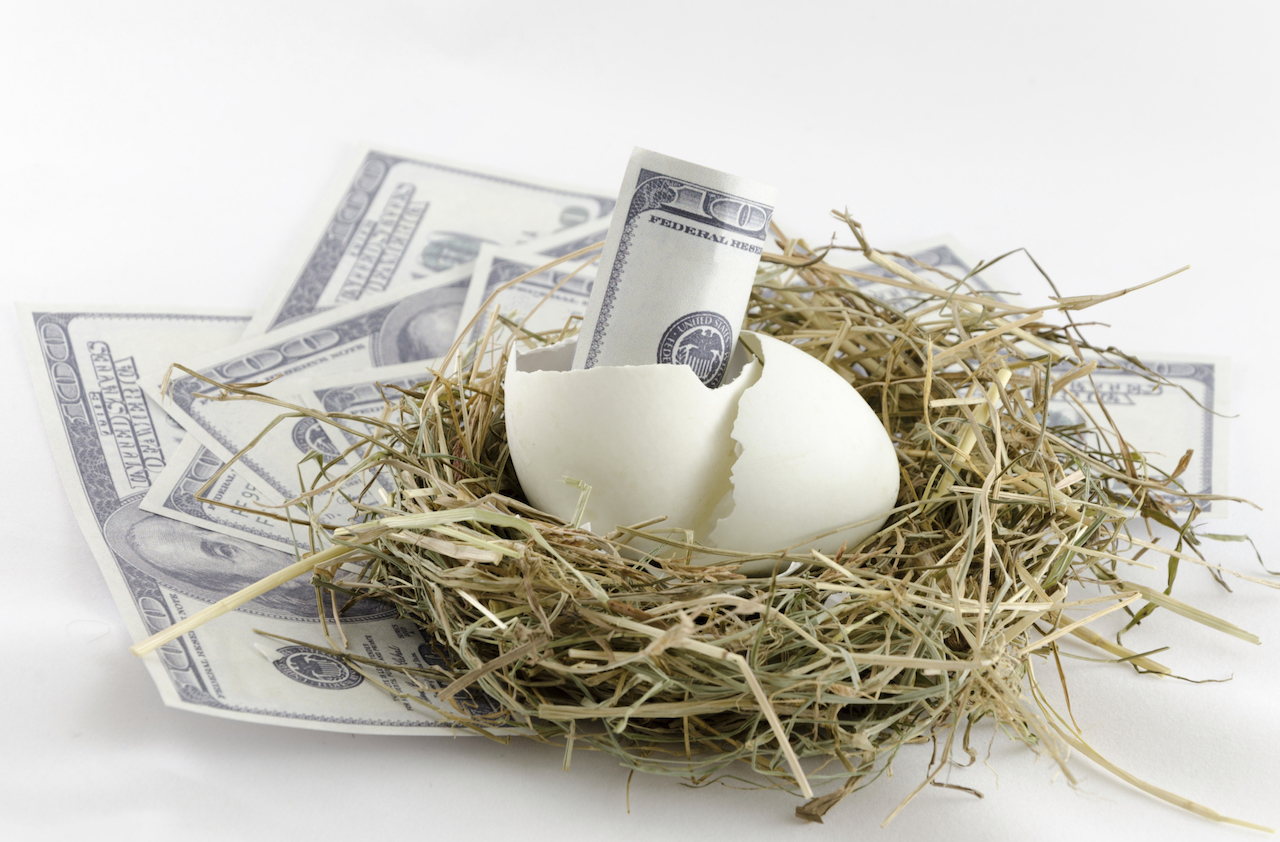Cashing Out Early
Usually you'll pay tax penalties for draining your IRA early, but there are exceptions.

Profit and prosper with the best of Kiplinger's advice on investing, taxes, retirement, personal finance and much more. Delivered daily. Enter your email in the box and click Sign Me Up.
You are now subscribed
Your newsletter sign-up was successful
Want to add more newsletters?

Delivered daily
Kiplinger Today
Profit and prosper with the best of Kiplinger's advice on investing, taxes, retirement, personal finance and much more delivered daily. Smart money moves start here.

Sent five days a week
Kiplinger A Step Ahead
Get practical help to make better financial decisions in your everyday life, from spending to savings on top deals.

Delivered daily
Kiplinger Closing Bell
Get today's biggest financial and investing headlines delivered to your inbox every day the U.S. stock market is open.

Sent twice a week
Kiplinger Adviser Intel
Financial pros across the country share best practices and fresh tactics to preserve and grow your wealth.

Delivered weekly
Kiplinger Tax Tips
Trim your federal and state tax bills with practical tax-planning and tax-cutting strategies.

Sent twice a week
Kiplinger Retirement Tips
Your twice-a-week guide to planning and enjoying a financially secure and richly rewarding retirement

Sent bimonthly.
Kiplinger Adviser Angle
Insights for advisers, wealth managers and other financial professionals.

Sent twice a week
Kiplinger Investing Weekly
Your twice-a-week roundup of promising stocks, funds, companies and industries you should consider, ones you should avoid, and why.

Sent weekly for six weeks
Kiplinger Invest for Retirement
Your step-by-step six-part series on how to invest for retirement, from devising a successful strategy to exactly which investments to choose.
If IRA tax breaks are the carrots Congress uses to encourage you to save for retirement, penalties for early withdrawal are the sticks that make sure you keep at it.
Not to worry, IRAs contain a number of penalty-free escape hatches. Here are the early-out rules to consider for traditional IRAs and Roth IRAs.
Traditional IRAs
For the most part, if you dip into your account before you're 59½, you may be hit with a 10% penalty for premature distribution.
From just $107.88 $24.99 for Kiplinger Personal Finance
Become a smarter, better informed investor. Subscribe from just $107.88 $24.99, plus get up to 4 Special Issues

Sign up for Kiplinger’s Free Newsletters
Profit and prosper with the best of expert advice on investing, taxes, retirement, personal finance and more - straight to your e-mail.
Profit and prosper with the best of expert advice - straight to your e-mail.
We say you may be hit with a penalty because there's an ever-growing list of exceptions to the penalty. For example, it's waived if:
- You become permanently disabled.
- You use the IRA money to pay medical bills that exceed 10% of your adjusted gross income.
- You use the money to pay for medical insurance during an extensive period of unemployment.
- You use up to $10,000 to help pay for or build a first home for yourself, your spouse, your kids, your grandchildren or even your parents. That $10,000 is a lifetime limit, not an annual one.
- You use the money to pay higher-education expenses for yourself, your spouse, a child or grandchild. Qualified expenses include tuition, fees, and room and board for postsecondary education, including graduate work.
- You take the money in equal annual amounts, designed to exhaust the account during the course of your life expectancy (as estimated by the IRS). You can increase this amount by adding reasonable future IRA investment earnings when figuring the size of the payouts.You can begin this kind of early-withdrawal plan whenever you want, but to dodge the 10% penalty, you must stick with it for the longer of five consecutive years, or until you turn 59½.
Warning!Even though qualifying withdrawals escape the 10% penalty, they would be taxed in your top bracket (except to the extent it was attributable to nondeductible contributions).
Roth IRAs
Roth IRA withdrawals are hit with a 10% penalty if you cash in before age 59½ and they lose their tax-free status. However, there are ways to get money out of a Roth tax- and penalty-free.
You can reclaim contributions at any time and at any age, without fear. Only earnings are subject to penalties. And Congress said that the first money coming out of Roth IRAs will be considered contributions.
But, money that is converted to a Roth must generally stay in the account long enough to meet the five-year test -- that is, for four calendar years after the year of the conversion -- to avoid the 10% penalty.
Example: In 2010, a 30-year-old converted $20,000 to a Roth IRA. The five-year test would be met at the end of 2014, so at age 34 the investor could withdraw the $20,000 tax- and penalty-free.
Roth earnings
So, how are Roth earnings taxed? Earnings are tax-free if you pass the five-year test and meet other tests:
- You are 59½ or older at the time of withdrawal.
- The money is used for a first-time home purchase (up to the $10,000 limit).
- The money is distributed after you become disabled.
- The money is distributed to your heirs after your death. If you die before meeting the five-year test, heirs would have to wait until the year you would have passed that test to withdraw earnings tax-free.
- In other instances, failure to meet the five-year test guarantees that your earnings will be taxable, regardless of your age, even if the earnings escape the 10% early-withdrawal penalty. For example, whether or not the five-year test is met, withdrawals at any age to pay qualifying college costs dodge the 10% penalty. But the earnings will be taxed -- unless you're older than 59½ and meet the five-year test, in which case earnings can be withdrawn tax- and penalty-free for any purpose.
| Moving Your IRA Money | Row 0 - Cell 1 | Tapping Your IRA in Retirement |
Profit and prosper with the best of Kiplinger's advice on investing, taxes, retirement, personal finance and much more. Delivered daily. Enter your email in the box and click Sign Me Up.
-
 Ask the Tax Editor: Federal Income Tax Deductions
Ask the Tax Editor: Federal Income Tax DeductionsAsk the Editor In this week's Ask the Editor Q&A, Joy Taylor answers questions on federal income tax deductions
-
 States With No-Fault Car Insurance Laws (and How No-Fault Car Insurance Works)
States With No-Fault Car Insurance Laws (and How No-Fault Car Insurance Works)A breakdown of the confusing rules around no-fault car insurance in every state where it exists.
-
 Why Picking a Retirement Age Feels Impossible (and How to Finally Decide)
Why Picking a Retirement Age Feels Impossible (and How to Finally Decide)Struggling with picking a date? Experts explain how to get out of your head and retire on your own terms.
-
 AI Appliances Aren’t Exciting Buyers…Yet
AI Appliances Aren’t Exciting Buyers…YetThe Kiplinger Letter Artificial intelligence is being embedded into all sorts of appliances. Now sellers need to get customers to care about AI-powered laundry.
-
 Banks Are Sounding the Alarm About Stablecoins
Banks Are Sounding the Alarm About StablecoinsThe Kiplinger Letter The banking industry says stablecoins could have a negative impact on lending.
-
 Big Changes Are Ahead for Higher Ed
Big Changes Are Ahead for Higher EdThe Kiplinger Letter A major reform of higher ed is underway. Colleges are bracing for abrupt change, financial headwinds and uncertainty.
-
 What New Tariffs Mean for Car Shoppers
What New Tariffs Mean for Car ShoppersThe Kiplinger Letter Car deals are growing scarcer. Meanwhile, tax credits for EVs are on the way out, but tax breaks for car loans are coming.
-
 AI’s Rapid Rise Sparks New Cyber Threats
AI’s Rapid Rise Sparks New Cyber ThreatsThe Kiplinger Letter Cybersecurity professionals are racing to ward off AI threats while also using AI tools to shore up defenses.
-
 Blue Collar Workers Add AI to Their Toolboxes
Blue Collar Workers Add AI to Their ToolboxesThe Kiplinger Letter AI can’t fix a leak or install lighting, but more and more tradespeople are adopting artificial intelligence for back-office work and other tasks.
-
 AI Goes To School
AI Goes To SchoolThe Kiplinger Letter Artificial intelligence is rapidly heading to K-12 classrooms nationwide. Expect tech companies to cash in on the fast-emerging trend.
-
 What DOGE is Doing Now
What DOGE is Doing NowThe Kiplinger Letter As Musk's DOGE pursues its ambitious agenda, uncertainty and legal challenges are mounting — causing frustration for Trump.